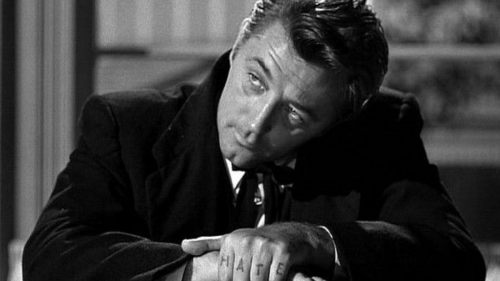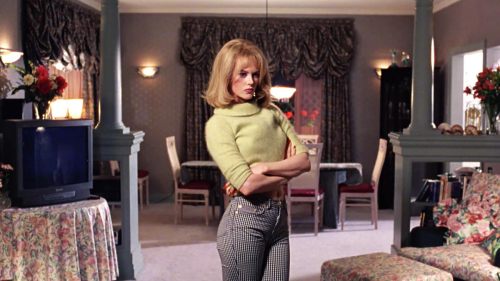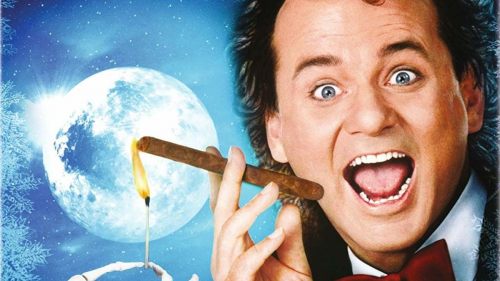Cover To Credits: THE PERKS OF BEING A WALLFLOWER
"The book was better" is a phrase heard often in conversations about book-to-film adaptations. "Don't judge a book by its movie" is another common jab. While we've all uttered some version of this sentiment at one point or another, there have been those rare occasions when the opposite is true. As a lifelong bookworm and cinephile, I've discovered that whether I read the book before or after seeing the movie can have a profound influence on my enjoyment of the story across both mediums. In this column, I’ll be checking out old and new adaptations to further explore both sides of that experience. In the process, I hope to unveil how these two vastly different mediums work together to tell the same story, from cover to credits.
---
“We accept the love we think we deserve.”
- Stephen Chbosky, The Perks of Being a Wallflower
“All of my previous selves still survive somewhere inside of me,” writes Roger Ebert, “and my previous adolescent would have loved The Perks of Being a Wallflower.” My “previous adolescent” must be the strongest of my surviving selves, because I live for stories like Stephen Chbosky’s esteemed first novel. Even with decades of distance from my own experiences, I’ve never forgotten the anxious and isolated feelings Charlie (Logan Lerman) confronts as he enters his first year of high school. The craving he has to belong and feel like he’s part of something is never more prominent than when we’re growing up – although, I’d argue it’s a desire that never really leaves us. Being seen, accepted, loved, these are the needs that drive and unite us, and that’s what Chbosky’s poignant story is all about. Accompanying Charlie through his freshman year of high school in the familiar landscape of the early nineties, the book and its adaptation are an affectionate reminder of those “infinite” moments from our formative years, when nothing felt more meaningful than the friendships that made them possible.

"There are people who forget what it’s like to be sixteen when they turn seventeen."
The events of the novel unfold through a series of letters written by Charlie to an anonymous friend, intimately connecting readers to the character by making them feel like the recipient. Set in Pittsburgh in 1991, long before the internet made finding your tribe a little easier, the introverted and sensitive Charlie must summon the courage to “participate” by approaching the friendliest face he can find in the war zone of school lunchrooms and football games. Welcomed with open arms by a charismatic group of seniors, who have embraced their “freak” status after years of subjection to the typical torment unleashed on outcasts, Charlie learns to accept his own eccentricities. Recently released from the hospital after a depressive episode brought on by his best friend’s suicide, his inner demons are momentarily quieted by love and empathy for his newfound friends. Always observing but never judging their choices, the wallflower lets everyone else’s troubles and secrets take precedence over his own until he can no longer stop the repressed memories of being sexually abused by his Aunt Helen (Melanie Lynskey) from breaking through.

"Our pictures will become old photographs."
Given the book’s epistolary format and heavy themes, I remember being skeptical when I heard it was being adapted for the big screen. By then, Chbosky’s fearless teenagers had become very special to me, given that the nineties setting made it so easy to draw comparisons to people and events from my own life. Everything, from the shadow cast screenings of The Rocky Horror Picture Show and wild house parties to the music, books, and mixtapes made me feel like I was opening a time capsule. But thanks to the author himself, who took up the mantle as screenwriter and director of the film, the project was in the most capable hands. While John Hughes is rumored to have been adapting the screenplay when he died (and, my god, what a match made in heaven that would have been!), Chbosky’s involvement obviously brought a very personal touch to the already sentimental tale. The moment our friend Charlie bobs his way onto the dancefloor to join Sam (Emma Watson) and Patrick (a scene stealing Ezra Miller) in their “living room routine,” there’s no denying that Chbosky’s beloved characters have come to life before our eyes.

"I can see it. This one moment when you know you’re not a sad story, you are alive."
Aside from pitch-perfect casting and a great soundtrack, one of the most beautiful things about this adaptation is that any missing details from the book never alter the atmosphere or direction of the story. In fact, the moments Chbosky added actually work to heighten the emotional impact of Charlie’s interactions, preventing the movie from becoming a carbon copy of the novel. The search for the tunnel song, specifically, deviates from the book while still depicting the characters’ appreciation for music and its innate power to capture the essence of an entire year within the measure of a melody. From page to screen, this is a story that resonates, quite simply, because we’ve all lived through the complicated themes Chbosky addresses. It’s rare to find a story this faithful to the core of what it was like to struggle, or watch our friends struggle with crippling issues involving depression, sexuality, drug use, suicide, and sexual abuse. As we get older, it's easy to forget how hard it was to navigate the world before we really knew ourselves. The Perks of Being a Wallflower is a reminder of the friends who were there for us and just how far we’ve come.

“And in this moment, I swear, we are infinite.”
Of course, no matter how old we get, participating never gets any easier. In that sense, I’ve always been in awe of the bravery Charlie exhibits during his first year of high school. But I think (read: hope) we’ve all experienced moments like the one he describes during the scene in the tunnel. Those fleeting instances of happiness where, even though you know it will pass as quickly as it arrived, inside of it you feel more alive than ever before. Until I picked up The Perks of Being a Wallflower, I don’t think I’d ever read a passage that captured those emotions so eloquently. Then the movie went and surpassed the book by adding David Bowie’s “Heroes" to the mix, sparking all the familiar longings of youth that never really leave us, no matter how hard we may try to push them away. If you’re like me, there are times from those days you’d rather forget, but I’ve always believed that certain moments are worth holding on to. Every once in a while, it’s nice to take the long way home just to listen to that song that reminds you of old friends, and the days when your whole life was still ahead of you.



